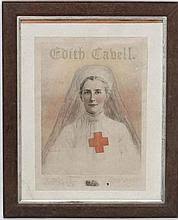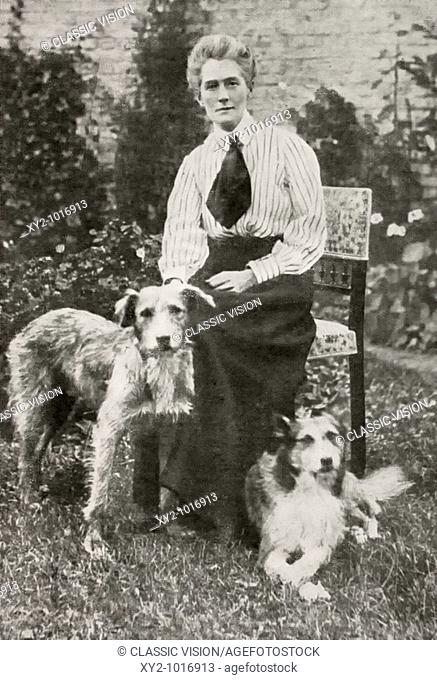One of Mimico’s top travelled roadway was named after English nurse, Edith Louisa Cavell, who was killed by a firing squad for saving the lives of hundreds of Allied soldiers by smuggling them out of Nazi-held Belgium.
Cavell, was 49, when she was killed by a German firing squad in October 1915 for saving the lives of some 200 Allied soldiers by helping them escape from Germany-occupied Belgium during the First World War.
She was arrested by the Germans and charged with treason, found guilty by a court-martial and sentenced to death.
Despite international pressure for mercy, Cavell was shot by a firing squad one early morning. Her execution received global condemnation and extensive press coverage.
The night before her execution, she said, “Patriotism is not enough. I must have no hatred or bitterness towards anyone.” These words were later inscribed on a memorial to her near Trafalgar Square.
Cavell was already notable as a pioneer of modern nursing when killed.
Her bravery was admired by people worldwide and there are dozens of buildings, parks, statues and roads, like Cavell Avenue in Mimico, named after the valiant nurse. There are pages of events and things named after Cavell.
She became a nurse while taking care of her father at the age of 30. She worked as a travelling nurse and worked her way through a number of hospitals.
Cavell was sent to assist with the typhoid outbreak in Maidstone during 1897. Along with other staff she was awarded a Maidstone Medal.
She took a temporary post as matron in 1906 of the Manchester and Salford Sick and Poor and Private Nursing Institution and worked there for about nine months.
She then launched the nursing journal, L’infirmière” and within a year, she was training nurses for three hospitals, twenty-four schools, and thirteen kindergartens in Belgium.
By November 1914, after the German occupation of Brussels, Cavell began sheltering British soldiers and funneling them out of occupied Belgium to the neutral Netherlands.
Wounded British and French soldiers as well as Belgian and French civilians of military age were hidden from the Germans and provided with false papers and led by guides to hosts who would furnish them with money to reach the Dutch frontier.
The German officials began to suspect her movements and activity.
Cavell was arrested in August 1915 and charged with harbouring Allied soldiers. She admitted that she was instrumental in ‘conveying about 60 British and 15 French soldiers, as well as about 100 French and Belgian civilians to the frontier.”
Sixteen men, forming two firing squads, carried out the sentence on her and four Belgian men at the Tir national shooting range in Schaerbeek, at 7 a.m. on October 12.
Eyewitness accounts of the shooting said Cavell was shot by eight soldiers.
The nurse was at one time the best-known woman in the world. Her death by firing squad turned her into a propaganda icon, with her name gracing schools, bridges, parks and roads right here in Mimico.

